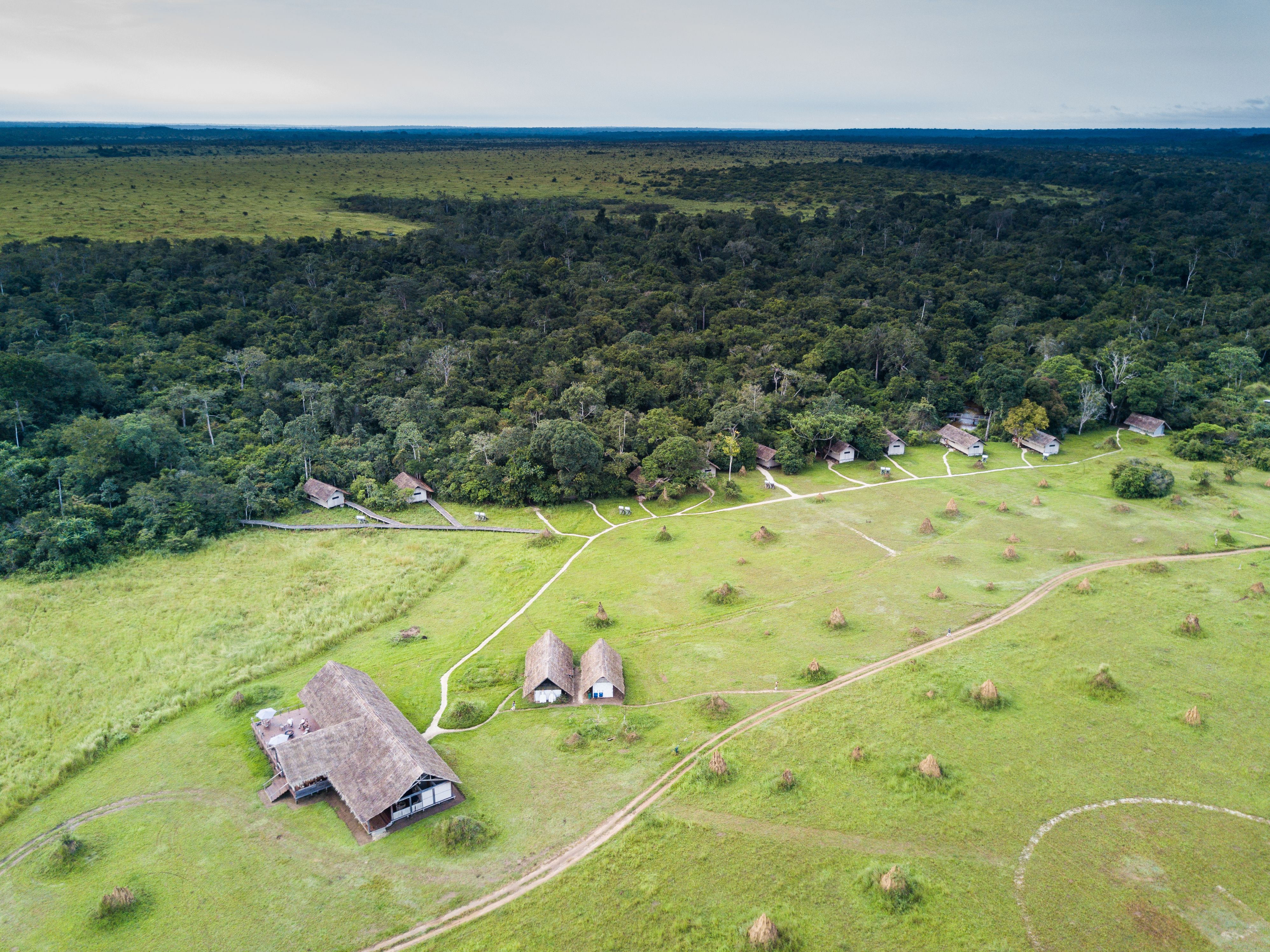Founded in 2000, African Parks manages national parks in sub-Saharan Africa. Since 2010, they oversee Odzala-Kokoua National Park, focusing on sustainable funding, anti-poaching, infrastructure, and wildlife reintroduction, benefiting biodiversity and local communities.
Sustainable Funding and Holistic Conservation by African Parks
Efficient Management and Diverse Funding
African Parks manages its operations through a centralized administration, securing funding from a wide range of partners, including governmental and non-governmental organizations. This diversified funding approach ensures robust support for their conservation efforts. Each protected area is operated as a self-sustaining business unit, focusing on generating income through fees and services.
Key Areas of Focus:
-
Infrastructure Development and Maintenance:
- Building and maintaining essential infrastructure to support conservation activities and tourism.
- Ensuring that facilities are up-to-date and functional to enhance both visitor experience and operational efficiency.
-
Surveillance and Anti-Poaching Efforts:
- Implementing extensive surveillance systems to monitor wildlife and deter illegal activities.
- Deploying anti-poaching units to protect endangered species and reduce wildlife crime.
Proactive Action for Biodiversity:
African Parks emphasizes the necessity of proactive measures to safeguard Africa's biodiversity. This includes addressing the challenges faced by protected areas and developing strategies to mitigate threats to wildlife and habitats.
Community Engagement and Employment Opportunities:
African Parks actively engages with local communities, implementing various projects and providing employment opportunities for 80 to 200 people per park. Their holistic approach includes:
-
Tourism Development:
- Promoting eco-tourism to generate income and raise awareness about conservation.
- Developing sustainable tourism practices that benefit both the environment and local economies.
-
Wildlife Reintroduction:
- Reintroducing native species to restore ecological balance and enhance biodiversity.
- Working with experts to ensure successful reintegration of species into their natural habitats.
-
Establishing Networks:
- Forming a network of entities like the African Parks Network (APN), country-specific entities, and sister associations to strengthen conservation efforts across the continent.
Contribution to Conservation and Community Development
Impact of Your Visit:
By visiting Odzala-Kokoua National Park, you support African Parks' conservation and community development efforts. Your contributions through park fees, guided tours, accommodations, ecotourism activities, and donations help protect biodiversity and support local communities, ensuring long-term sustainability
Summary:
Your visit aids in essential conservation and community projects, supporting both the park's ecological balance and the economic well-being of surrounding communities. This holistic approach fosters sustainable development and conservation (African Parks).
With over 4,273 Full-Time Employees, including 1,400 rangers, African Parks is dedicated to biodiversity conservation and sustainable park management.
Afrikan Parks: Impact by Numbers
Key Points:
Safeguarding African Parks
Cross-Border Nature Conservation
Expansion Goal
Funding Sources for Conservation
Economic Sustainable Conservation
Conservation Essentials
Local Empowerment
Ecological Sustainability
Dedicated Team for Biodiversity Conservation

We love teaching you about the magic of Odzala-Kokoua National Park.
If you have any further questions, please visit our comprehensive FAQ section.